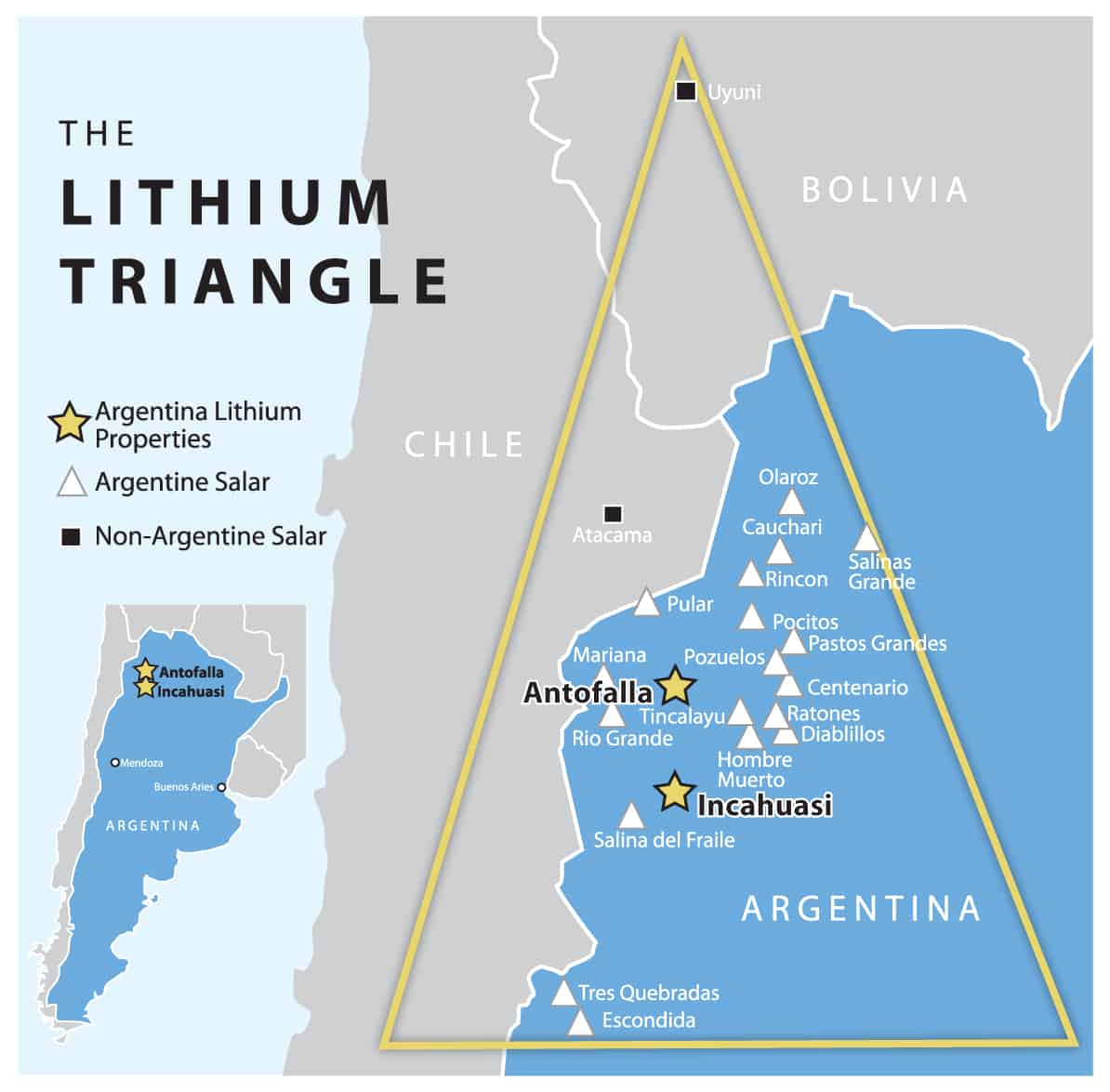Argentine President Alberto Fernández said Wednesday that the South American country plans to “increase lithium production tenfold” by 2030, assuring that his government will continue to promote energy development.
According to a press release from the presidency, the president spoke today to executives from 30 of the most important companies in the international energy sector in Houston, U.S.
Experts have stressed that Argentina has excellent potential in lithium, as it produces 65 percent of this material worldwide, along with Bolivia and Chile.

According to a report by Argentina’s Ministry of Mines, the South American country is expected to produce 33,003 metric tons of lithium carbonate equivalent (LCE) in 2020, almost double the 19,163 metric tons of LCE produced in 2015.
Fernández also stressed that the South American country “can supply the world with energy.”
“Not only because of the (unconventional hydrocarbon deposit) Vaca Muerta, but also because of the wealth of wind, solar, and lithium. The world is in the midst of severe energy problems, and Argentina is part of the solution,” the president said.
Fernández also stated that “unconventional gas reserves today are sufficient to supply the domestic market for 170 years,” but that “given the scarcity of gas and the needs of the energy transition at the regional and global level, it would not make sense to sit this wealth out for so long.”
Vaca Muerta is an unconventional hydrocarbon formation in Patagonia (southern Argentina) that covers an area of 30,000 square kilometers, roughly the size of Belgium.
It is the world’s second-largest unconventional gas reserve and the fourth-largest oil reserve.
It is considered by experts to be crucial for Argentina, which is striving to stop importing energy and become a net exporter while improving its foreign exchange earnings.

